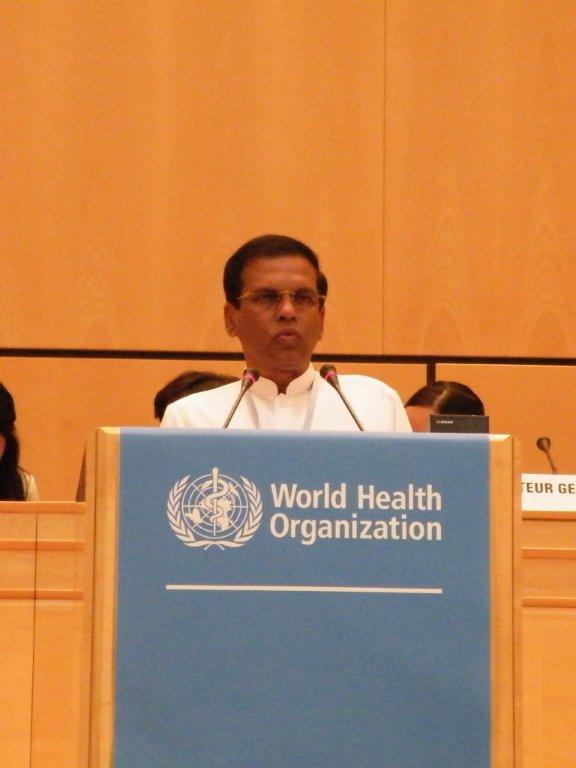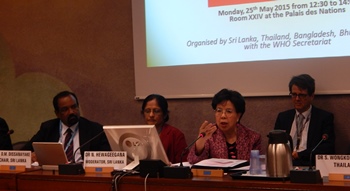
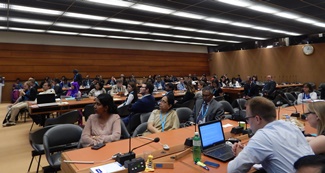
Dr. Margaret Chan, the Director General of the World Health Organization (WHO) has said "“Pictorial warning is the most cost effective means of controlling tobacco related Non Communicable Diseases (NCDs), including cancer “, and that "countries can get return on their investment in multiple areas". Paying tribute to countries including Sri Lanka whom she said "had the courage to keep going despite heavy resistance by the tobacco industry", Dr. Chan said "without our joint effort, you know what effect tobacco would take. We should not allow an industry to intimidate governments, make money and leave you with all the health consequences". She urged that "the international community come together to fight the tobacco industry".
Dr. Chan made these observations when she inaugurated a session on the theme “Strategies to overcome resistance against pictorial warning messages in tobacco products”, hosted by Sri Lanka on the sidelines of the 68th World Health Assembly at the Palais des Nations in Geneva on Monday (25th May 2015).
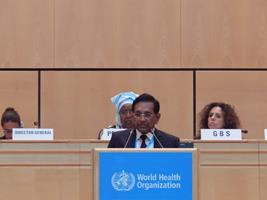
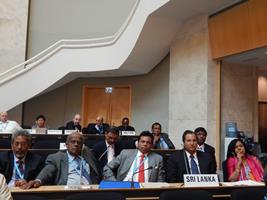
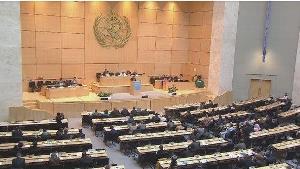
Minister of Health and Indigenous Medicine Dr Rajitha Senartne today (19 May 2015) addressed the 68th World Health Assembly held in Geneva and highlighted the progress Sri Lanka has made in achieving the Millennium Development Goals and universal health coverage, particularly with respect to Maternal & Child Health and the control of communicable diseases.
Highlighting the health scenario in the country he said that under the guidance of President Maithripala Sirisena, the country is poised to enter a new phase of health development and pointed out that the health burden of the country is now moving more towards non communicable diseases, such as cardiovascular, respiratory neoplasm and diabetes, which account to over 70% of deaths.
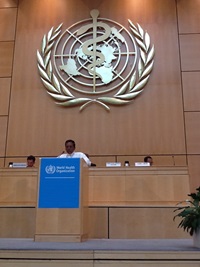
Minister of Health and Vice President of the 67th World Health Assembly, Maithripala Sirisena, addressing the World Health Assembly today (20th May 2014) said “the World Health Assembly has a historic opportunity to once again appeal to the world community to demand those countries releasing large amount of carbon-dioxide and offensive gases to the atmosphere - to adopt carbon free energy sources to run their industries. These developed nations should be held responsible for releasing large quantities of offensive gases, and the people in developing and poor countries are the victims that have to bear the consequences. Let us all be eco-centered rather than ego-centered so that we can all live happily and with good health and leave to the future generations a much better and a healthy place to live in.
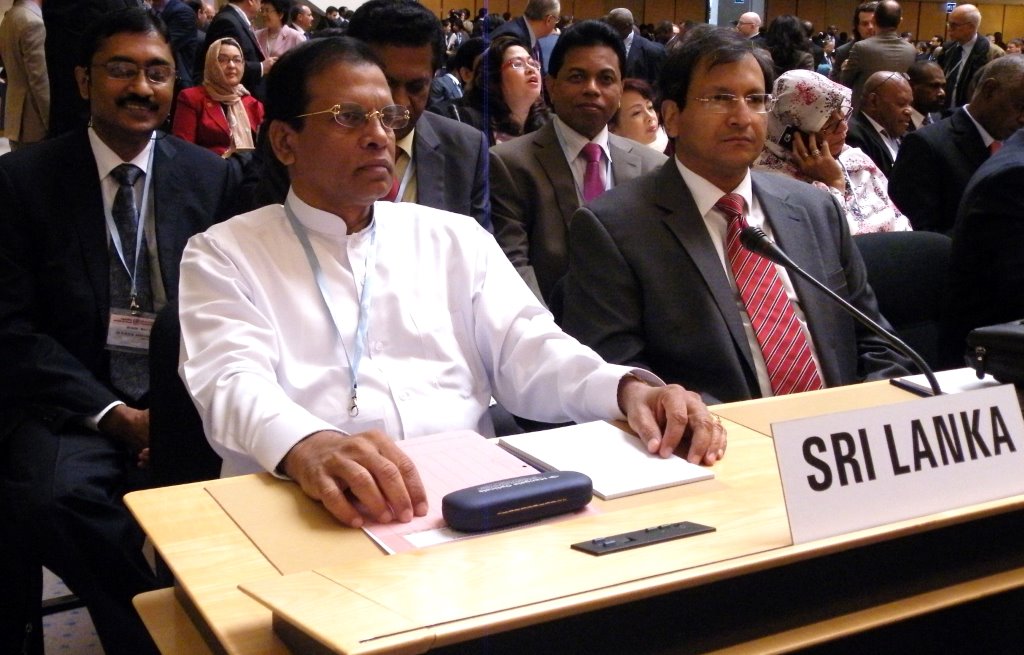
Hon Minister Maithripala Sirisena addressesthe 65th World Health Assembly in Geneva
The Sri Lankan delegation headed by the Hon Minister Maithripala Sirisena participated at the 65th World Health Assembly which concluded in Geneva last week. The assembly which took place at the United Nations Headquarters in Geneva was attended by more than 190 Member States, UN bodies and Civil society representatives. Addressing the assembly on the second day, the hon. Minister outlined the achievements and developments taking place within the medical and health spheres in Sri Lanka and further elaborated on Sri Lanka’s future plans.
- Statement by Sri Lanka delegation (by Mr. O.L. Ameerajwad, Counsellor) under Agenda item 7 (h) at Substantive Session of ECOSOC 2007 on 27 July 2007
- Address by Hon. Nimal Siripala de Silva, Minister of Healthcare and Nutrition of Sri Lanka at the 60th World Health Assembly, Geneva – 16th May, 2006
- Address by Hon. Nimal Siripala de Silva, Minister of Healthcare and Nutrition of Sri Lanka at the 59th World Health Assembly, Geneva – 23rd May, 2006

